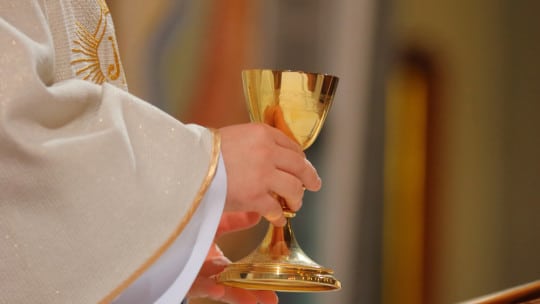
The basic playbook for PR crisis calls for a brand or organization to first act promptly. It then must be transparent about what has occurred, humbly own whatever mistakes it's made, apologize earnestly and compensate the injured, launch an internal investigation and issue guidelines to make certain such miscues don’t reoccur.
When brands and organizations endure years of issues, they enter a crisis from a position of weakness. The Catholic Church, for example, has been under a cloud for many years owing to a string of sexual abuse scandals and alleged cover-ups.
The issue rose to prominence again earlier this summer when a PA grand jury issued a lengthy report detailing abuse by some 300 priests of 1,000+ children during several decades. In addition to triggering other states to consider undertaking investigations, the report prompted a meeting in Rome last week between the Pope and a delegation of U.S. bishops. Some of the fruits of that meeting now are being made public.
A Third-Party Hotline
Here are steps the Church is taking to repair its reputation:
On Sept. 19, the U.S. Conference of Catholic Bishops (USCCB) issued a response to the long-running scandal and the PA report, announcing establishment of a hotline that a third party will administer where victims of sexual abuse can file complaints against bishops.
In addition, the USCCB response called for a code of conduct to address sexual misconduct in its ranks and church negligence in handling sexual abuse.
The bishops also urged a “full investigation” of former Washington, D.C. Archbishop Theodore McCarrick, who recently was forced to retire from his position as a cardinal. The bishops failed to mention what role, if any, the Vatican should have in such an investigation.
Allegations of sexual abuse followed McCarrick for decades, making his promotion to cardinal controversial. His retirement marked the first time that a U.S. cardinal stepped down due to sexual abuse allegations.
A Bold Move
T.J. Winick, SVP at Solomon McCown, followed the sexual abuse scandal in Boston’s diocese as a local TV reporter there for years. He says the proposed third-party hotline is “the boldest move by the bishops in a long time.” Scott Sobel, SVP, crisis and litigation, at kglobal, who has worked for large international churches including the Catholic Church, calls it "a step in the right direction...and indicates Church leadership is open to taking a more transparent approach to punishment and prevention."
Winick cautions “there needs to be concrete proof that the hotline works” as advertised, since the Church’s reputation is so badly maligned from years of scandals “pretty much anything proposed will be seen as too little, too late.” Sobel agrees. "The Church," he says, must "allay suspicions that the proverbial fox is still the one watching the chicken coop."
It's critical, Sobel says, that the Church makes it "very clear its positions and investigations will evolve and as incremental successes are achieved, those successes, and failures, must also be measured by honest input by critics and totally objective investigators who don’t answer to the Church in any way."
The USCCB says cases of abuse reported to the hotline will be sent to “the appropriate ecclesiastical authority and, as required by applicable law, to civil authorities.” Precisely how the hotline will work and who the third-party operator will be remains unclear.
Work Ahead
While encouraged, Winick and Sobel believe the Church has a long way to go to regain trust. Winick sees the hotline and other measures as “an encouraging first step” in what he anticipates will be “a long slog” for the Church. Sobel agrees. "It will be a marathon...the...scandal has grown over decades; there will not be any quick fixes," he says. "Trust has to be established at the highest levels of the Church and at the parish level."
It might be significant that the USCCB issued the statement as opposed to the Vatican. USCCB also was the first Catholic organization to respond to the PA grand jury report. Although the Vatican issued a short response sometime after the USCCB's statement, the Pope's silence in the wake of the report was deafening. Several days after the report was issued, the Pope authored a long response that quelled some critics.
It is unclear whether or not the Vatican and the USCCB are coordinating their actions, though Winick says,"For years, the Vatican had to bless anything [the USCCB] did, literally and figuratively."
Seth Arenstein is editor of PR News. Follow him: @skarenstein
